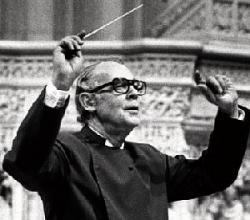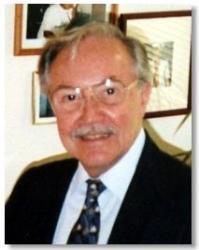
1774 - 1858 Topics: Advent 3 Year C Composer of "HORSLEY" in Voices United Born: November 15, 1774, Mayfair, London, England.
Died: June 12, 1858, Kensington, London, England.
Buried: Kensal Green Cemetery, London, England.
Horsley studied music privately, then became organist of Ely Chapel, Holborn, London, in 1794. He assisted Dr. J. W. Callcott (who encouraged him in persevering at Glee-writing, at which he became successful) as organist of the Asylum for Female Orphans, and married Callcott’s daughter. He succeeded Callcott in 1802, holding that post 52 years. A difference of opinion with the Asylum Committee led to him being dismissed. In 1838 he also became organist of Charterhouse "at a salary of £70 and a room set apart and a fire provided when necessary for his use on those days upon which his duty requires his attendance at the Hospital." He founded the London Philharmonic Society, and in later years was a close friend of Felix Mendelssohn.
J. C. Horsley, the eminent painter, relates in his Reminiscences the following experience when he went with his father to one of the services:
"When I was four years old my father was organist to the Asylum for Female Orphans, which was a stately building on the Westminster Bridge Road; and one Sunday he took me in with him to the morning service and landed me in the organ-loft. Everything was new and surprising to me, especially the crowd of buxom girls, at least a hundred in number, all dressed alike, ranged right and left of the organ, and who, when the organ had played a bar or two of the opening hymn, sang out with open mouths and such energy that I was positively scared, and in continently accompanied the performance with a prolonged howl; upon which my father, continuing to play the accompaniment with one hand, supplied me promptly with paper out of his capacious pocket, where he always kept a store of backs of letters (envelopes were not invented then), and a silver pencil-case of heroic proportions, thus quieting me." Lightwood, pp. 171-72
--www.hymntime.com/tch/
William Horsley


 My Starred Hymns
My Starred Hymns







